Dedicated
with Profound Respect to
P OPE P AUL VI
A N I MAGE B OOK
PUBLISHED BY DOUBLEDAY
a division of Bantam Doubleday Dell Publishing Group, Inc.
1540 Broadway, New York, New York 10036
I MAGE , D OUBLEDAY , and the portrayal of a deer drinking from a stream are trademarks of Doubleday, a division of Bantam Doubleday Dell Publishing Group, Inc.
Imprimi Potest: Michael J. Lavelle, S.J., Provincial
Detroit Province, May 20, 1981
Nihil Obstat: William B. Smith, S.T.D., Censor Librorum
Imprimatur: Joseph T. OKeefe, Vicar General
Joseph T. OKeefe, Vicar General
Archdiocese of New York, July 7, 1981
The nihil obstat and imprimatur are official declarations that a book or pamphlet is free of doctrinal error. No implication is contained therein that those who have granted the nihil obstat and imprimatur agree with the contents, opinions, or statements expressed.
Excerpts from The Jerusalem Bible, copyright 1966 by Darton, Longman & Todd, Ltd. and Doubleday & Company, Inc. Used by permission of the publisher.
Library of Congress Cataloging-in-Publication Data
Hardon, John A.
The Catholic catechism.
1. Catholic ChurchCatechisms and creedsEnglish.
I. Title.
BX1961.H37 238.2 815547
eISBN: 978-0-307-77958-8 AACR2
Copyright 1981 by John A. Hardon
ALL RIGHTS RESERVED
v3.1
ACKNOWLEDGMENTS
There are too many people to thank for their generous assistance in the writing of this volume to name all of them. But some persons must be mentioned: the members of the hierarchy who encouraged the publication of The Catholic Catechism and those who have since given it their warm approval; His Eminence John Cardinal Wright, Prefect of the Sacred Congregation for the Clergy, for his indispensable preface of recommendation; Rev. Joseph T. Mangan, S.J., and Rev. Earl A. Weis, S.J., deans of the graduate and undergraduate departments of theology at Loyola University of Chicago for their careful reading of the manuscript and numerous suggestions; Mr. John J. Delaney, Catholic editor of Doubleday & Company, for his invaluable counsel from the first stages of planning all through the publication of the book; and Mrs. Warren Joyce for her expert secretarial services in preparing the typescript.
CONTENTS
PREFATORY NOTE
When the General Catechetical Directory was ordered for publication by Pope Paul VI on April 11, 1971, it faced the urgent need in the Church for sound directives and clear leadership in the world of catechetics, a world that had become beset with mutual contradictions and even chaos. Vatican Council II had introduced many disciplinary changes, and the implementation of these, sometimes pastorally skillful, sometimes irresponsible, required a fresh look at the everyday faith of the Church and its need to be presented in a sound fashion.
In the wake of the Council, and under the aegis of acting in its spirit sometimes without reference to what it actually said, not a few aberrations, exaggerations, and deficiencies began to creep into textbooks and classrooms of some parts of the Churchs teaching structure. The Directory was needed lest tumult break out among believers. In the first place, it offers an authentic guide to the teaching of the updated doctrinal texts issued by the Council. In this capacity it also functions to codify, collect, and direct the thrust of the teaching content of the Council. In response to the confusion in some teaching areas, the Directory offered clear, sane guidelines.
But the Directory was not intended to be a new universal catechism, like the works that appeared after the Councils of Trent and Vatican I. It was inspired by the need to offer general guidelines that would function like the road signals along any well-marked highway. It gives an indication of just how far the traveler can go before crashing into the ditch. The actual laying out of the roadbed and the paving of the surface are left to those in each land who teach the faith as Captains in Israel and under specific local conditions. The same surface material might not work equally well in Montreal and Lagos, though the same basic orientation of faith prevails, or should, in both.
With this in mind, it devolved upon the various conferences of bishops, teachers of religion, and individuals to prepare catechisms geared to local situations. The Directory provides the basic principles of pastoral theologyprinciples taken from the magisterium of the Church and, in a special way, from the Second Vatican Council. Others are called upon to apply these principles and produce the catechetical texts that will embody them locally and specifically.
Father Hardon of the Jesuit School of Theology in Chicago has taken on the task of responsible author of the present book. The result is a comprehensive work entitled The Catholic Catechism. The work describes itself as a concise source book on the principal teachings of the Catholic Church. It offers readings in Catholic theology on every major segment of the Catholic tradition of faith.
The attempt to present a source book has necessarily resulted in an extensive, though easily read, text with many attractive features. For instance, the Bible is given special prominence in the presentation of the doctrine of the faith. The latest insights offered by the Council are blended with the unchanging dogmas of the Church to present a clear and logical unfolding of the teaching of the Catholic Church from the apostles to our own times.
Each group or person who undertakes to do a book of catechesis must choose some outline. And as long as there are alive two writers, the merits of any one outline can be disputed. No doubt this is true of the work authored by Father Hardon. There are, of course, various ways to lay out a highway and different surface materials to be selected. But as long as the road helps the traveler reach his goal soundly and safely, the essential purpose of the highway is satisfied. There is no doubt that the book written by Father Hardon will not only help the traveler on the road of catechetical inquiry reach his destination but do so with security and fidelity.
For todays student of religion, the text offers such topical sections as The Challenge of Modern Atheism and a balanced explanation of some of the discussions of Catholic doctrinal development in times of confusion. One notes particularly the treatment of the questions of the divinity of Christ and its gradual definition, in all its aspects, by successive Church councils from Nicea through Ephesus to Chalcedon. The student will be grateful for the manner in which this delicate and sometimes confusing discussion is made intelligible, a quality missing from many discussions, oral and printed.
Another aspect of the work that makes it satisfying is a comprehensiveness that takes into account such areas of study as the theological virtues, Catholic Tradition, and post-conciliar ecumenism. So detailed is the text that one could go on almost indefinitely listing matters of concern within the contemporary Church that form part of the hundreds of pages of this conscientiously thought-out catechetical treatise.
Essentially the question of the merit and value of any catechism boils down to whether it meets the purpose of a book of catechetical instruction. It is an instrument, and as such it must be weighed in the scale of how well it serves the purpose for which it was created. If the instrument works, if it works well and performs the task for which it was invented, then it is a good instrument. Much like the highway system, again, if it gets the traveler to his destination safely and with a minimum of deviation, then we must call it a good road.


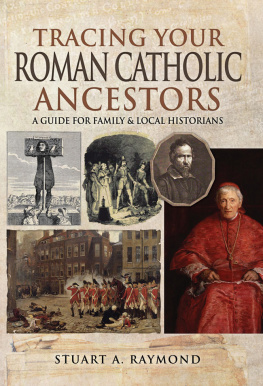
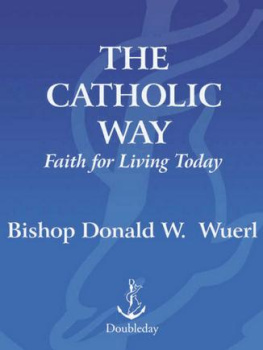
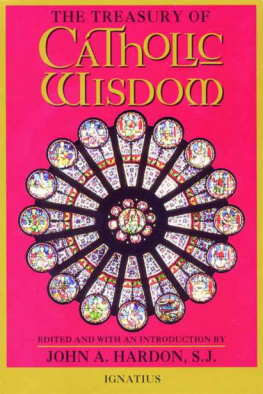
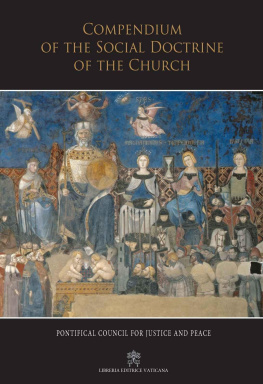
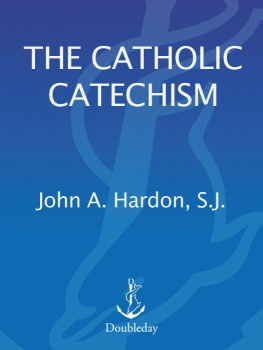
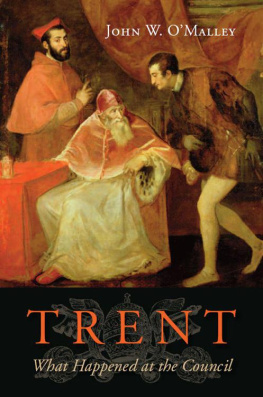
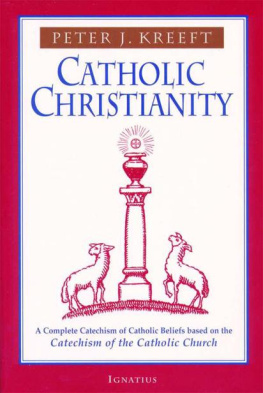
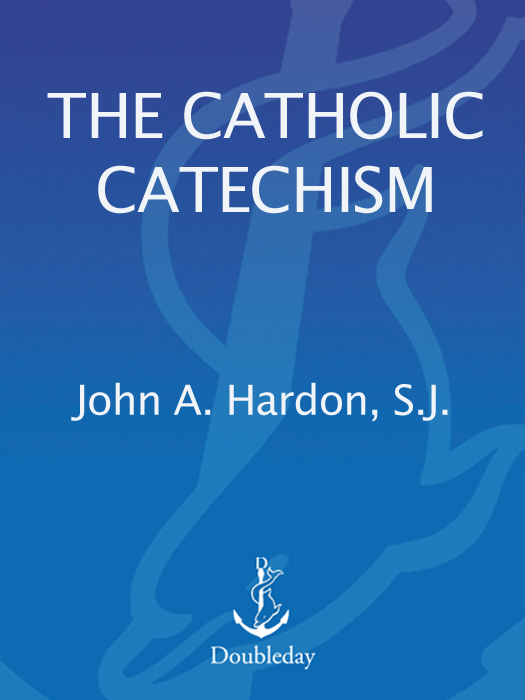
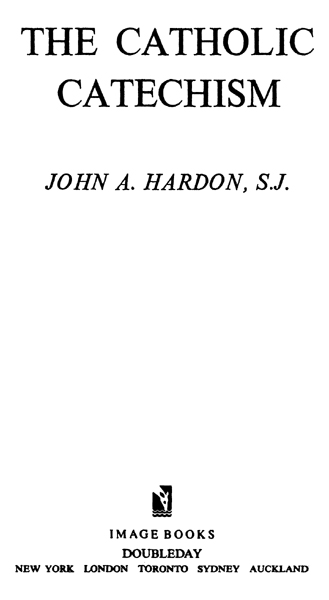
 Joseph T. OKeefe, Vicar General
Joseph T. OKeefe, Vicar General